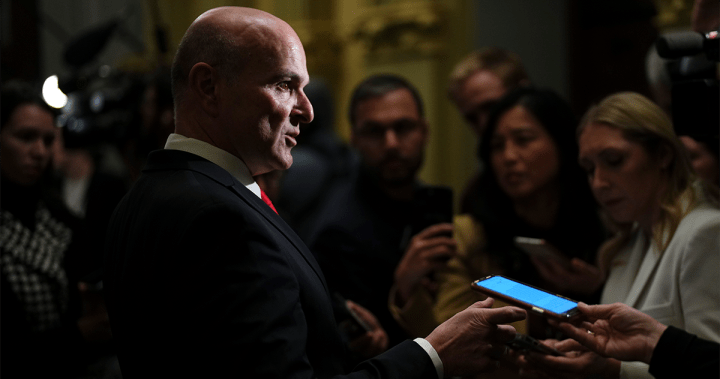Federal cabinet minister Randy Boissonnault remained listed as a director of the medical supply company Global Health Imports Corporation (GHI) for more than a year while it was competing for provincial and municipal contracts. Even after winning back his seat and being appointed to cabinet, Boissonnault continued to be listed as a director, despite federal conflict of interest laws prohibiting cabinet ministers from such roles. Documents show that GHI went on to win at least $8.2 million in contracts, sparking concerns about conflicts of interest.
Despite not being involved in the day-to-day operations of GHI since his election, Boissonnault retained his 50 percent stake in the company. However, a series of lawsuits against GHI over unpaid bills and unfulfilled deliveries were revealed during the investigation. GHI lost six lawsuits by default, leading to Alberta courts ordering the company to pay over $7.8 million to its suppliers and buyers. Boissonnault, who was not named in any of the lawsuits, was criticized for potential conflicts of interest.
Following the discovery of Boissonnault’s continued listing as a director of GHI in public registries, experts expressed concerns about the potential for conflicts of interest. Even if Boissonnault was not directly involved in the company’s operations, his association with GHI raised questions about how the company was able to secure contracts, especially during a time of high demand for personal protective equipment (PPE). Boissonnault was urged to update the registries to avoid any impropriety.
Amid mounting legal troubles and unpaid bills, Global Health Imports faced criticism from suppliers, including Calgary-based Vereburn Medical Supply. Despite winning a default judgment against GHI for $79,600, Vereburn’s president, Matt Veres, expressed concerns about Boissonnault’s involvement with the company tainting the business relationship. Boissonnault’s association with GHI during a time of crisis and rapid growth in the PPE sector raised ethical questions about profiting from the pandemic.
GHI’s business practices, including reselling products from other suppliers and listing prices at unusually low rates, raised further questions about the company’s operations. Boissonnault’s former co-founder, Stephen Anderson, who took the lead as GHI’s COO, documented a lavish lifestyle on social media, in contrast to Boissonnault’s more discreet approach to his involvement with the company. Despite Boissonnault’s disclosures to the ethics commissioner, errors in public registries and omissions regarding GHI raised concerns about transparency.
As Boissonnault faced calls for an investigation by the ethics commissioner under the Conflict of Interest Act, questions were raised about the government’s procurement practices during the pandemic. GHI’s ability to secure contracts, including an $8.2-million deal with the Quebec government for sanitary wipes, alongside major companies, raised eyebrows in the industry. Boissonnault’s delayed actions in updating his directorship status with GHI highlighted potential conflicts of interest and the need for greater transparency in government contracting processes.













